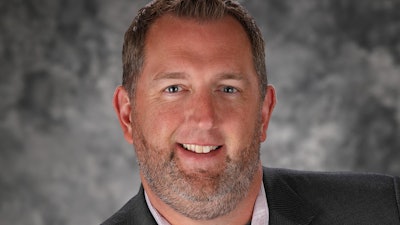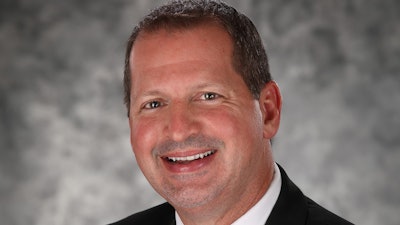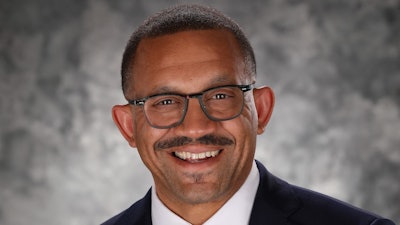Working together, educational institutions can create more accessible and effective pathways for students to enter high-demand career fields. Dr. Margaret Terry Orr (1999) noted in her research-paper, “Community College and Secondary School Collaboration on Workforce Development and Education Reform: A Close Look at Four Community Colleges,” that an “increased emphasis on workforce preparation for our nation’s youth, particularly for mid-level and higher-skill development, requires greater postsecondary educational preparation, expanding the role of community colleges in school reform and school-to-work transition building.” Twenty-four years later, stakeholders are still seeing evidence of community colleges expanding their role in school reform, especially in the State of Missouri. Brian Noller
Brian Noller
The Show-Me State has a Career and Technical Education (CTE) delivery system consisting of 518 local education agencies. These agencies consist of high schools, a state technical college, community colleges, four-year institutions, two state agencies and career centers. One such career center is in the north Kansas City region and has been putting “an increased emphasis on workforce preparation for our nation’s youth,” for nearly 45 years.
The Northland Career Center (NCC) is located within the Platte County R3 School District in Platte City, Missouri, and offers 13 secondary daytime programs to students from seven neighboring school districts. Along with the NCC’s efforts to provide quality training programs to youth living in The Northland, so does Metropolitan Community College (MCC).
In 1969, MCC assigned more expensive specialized programs to their single campuses and later expanded their fifth permanent campus, MCC-Business and Technology, to create a 340,000-square-foot facility to house a greater-majority of MCC’s CTE programs. In an article published by CNN titled, “The US Desperately Needs Skilled Workers. but The Community Colleges that Train Them Are Woefully Underfunded” (Wallace, 2022), Chancellor Kim Beatty spoke of MCC’s efforts to consolidate several schools and programs to create learning hubs. “This included relocating career and technical education programs from MCC’s single campus model to a new state-of-the-art facility closer to the city center, with greater accessibility to bus lines and the public school district,” Beatty stated in the article.
In response to external pressures, such as distress in funding, issues with accessibility, aging facilities along with outdated technologies and training equipment, MCC accepted the opportunity to engage in a powerful partnership with Platte R-3 School District to build a NEW more-centrally located facility called the Northland Workforce Development Center, a name change from the original NCC moniker. The development center will assist with making a dent in the workforce shortages in Clay and Platte Counties along with increasing workforce preparation opportunities for youths and adults living in the North Kansas City region. Jay Harris
Jay Harris
Project Background: Platte R-3 School District and Northland Career Center
For this vision to become reality, NCC and Platte R-3’s school district’s leadership understood the project would require substantial financial support from the state legislature. As a result, NCC pursued meetings with several key civic organizations along with local, state, and federal legislators to discuss solutions for building a better workforce. The result of NCC’s persistence led to their proposal for a new facility with a price tag of approximately $60 million. In May of 2022, the Missouri State Legislature invested in the workforce initiative by appropriating $30 million of its FY 2023 budget.
Project Role: Metropolitan Community College
Until ground is broken on the $60 million facility, MCC will continue serving on the NWDC Capital Campaign committee along with working with architects and builders to design facets of the facility to support both secondary and post-secondary students and career & technical education programs.
So as not to replicate CTE programs MCC currently offers at its single campuses and institutes, MCC – Maple Woods (MCC’s northern-most campus) is working with NCC’s advisory committees to refresh curriculum in agriculture, aviation, and computer science information systems, along with associated space and equipment to offer college-level credentials to high school students and working-aged adults during evenings and weekends. As a result of the partnership with NCC, MCC – Maple Woods will acquire new space and equipment that it once could not afford due to external funding pressures.
Call to Action Larry Rideaux
Larry Rideaux
As the landscape of education and workforce development continues to evolve, community colleges must continue to expand their role in school reform and workforce preparation for our nation's youth along with pursuing collaborations with secondary schools and career centers in their own communities. Moreover, community colleges must advocate for increased funding from local, state, and federal governments and policymakers to support the development of modern facilities and up-to-date training equipment. These strategies will ensure our community colleges have the resources they need to prepare the next generation of skilled workers for all our communities.
Dr. Larry Rideaux is the president of the Maple Woods Campus, Metropolitan Community College, Kansas City, Missouri. Dr. Jay Harris is the superintendent of schools, Platte County R-3 School District in Missouri. Brian Noller is the director of community, school, and business partnerships, Platte County R-3 School District, Missouri.
The Roueche Center Forum is co-edited by Drs. John E. Roueche and Margaretta B. Mathis of the John E. Roueche Center for Community College Leadership, Department of Educational Leadership, College of Education, Kansas State University.





















